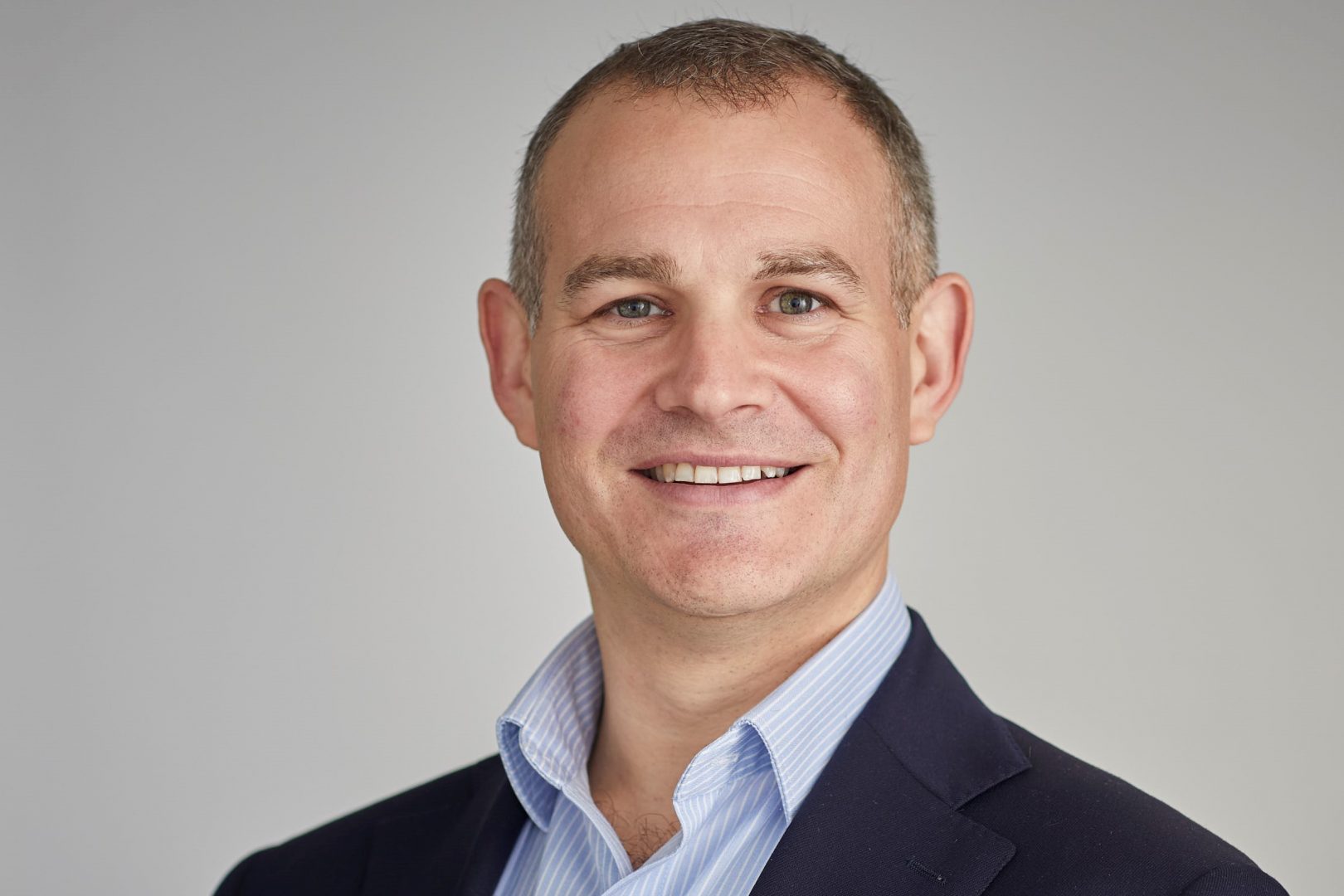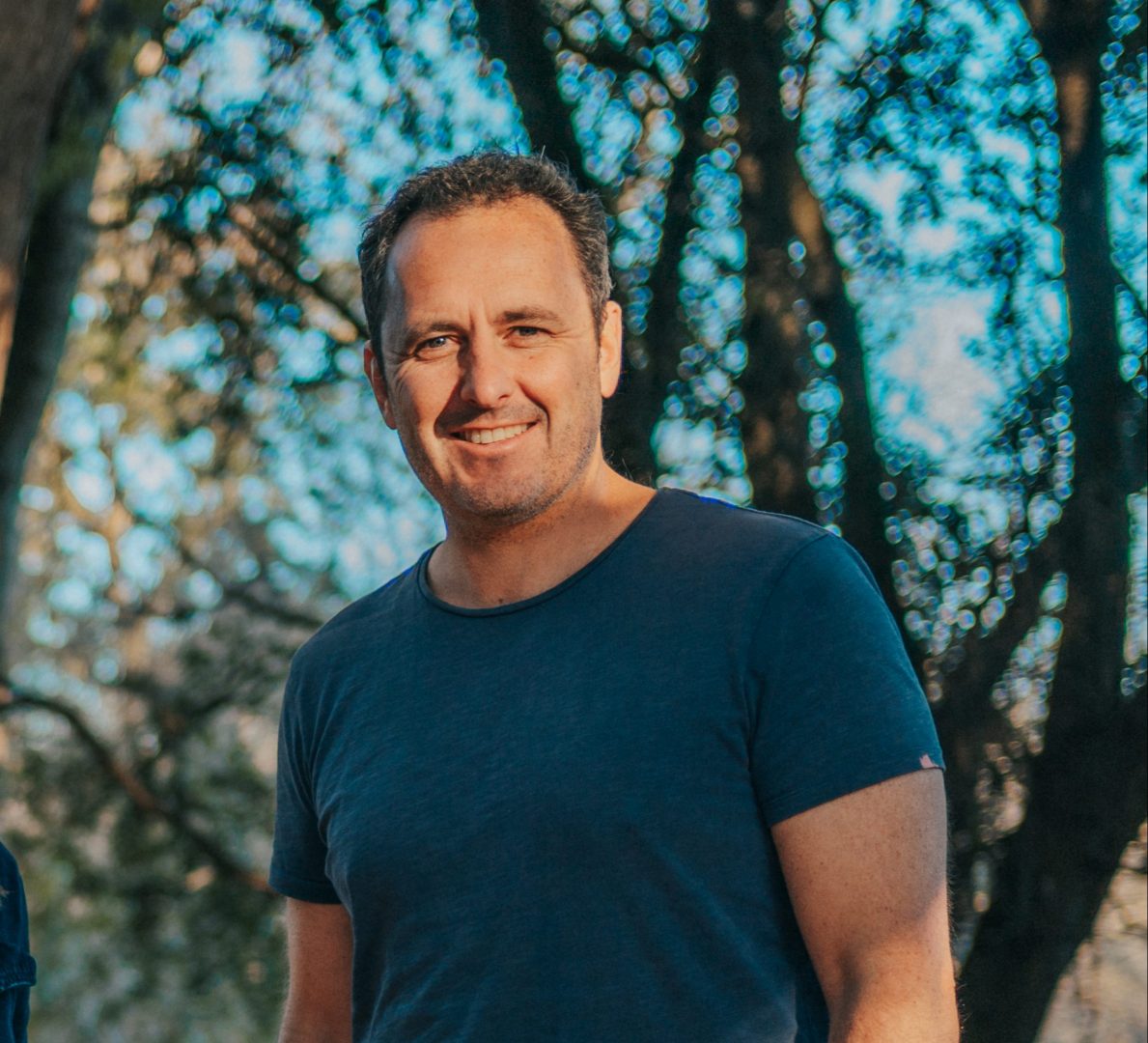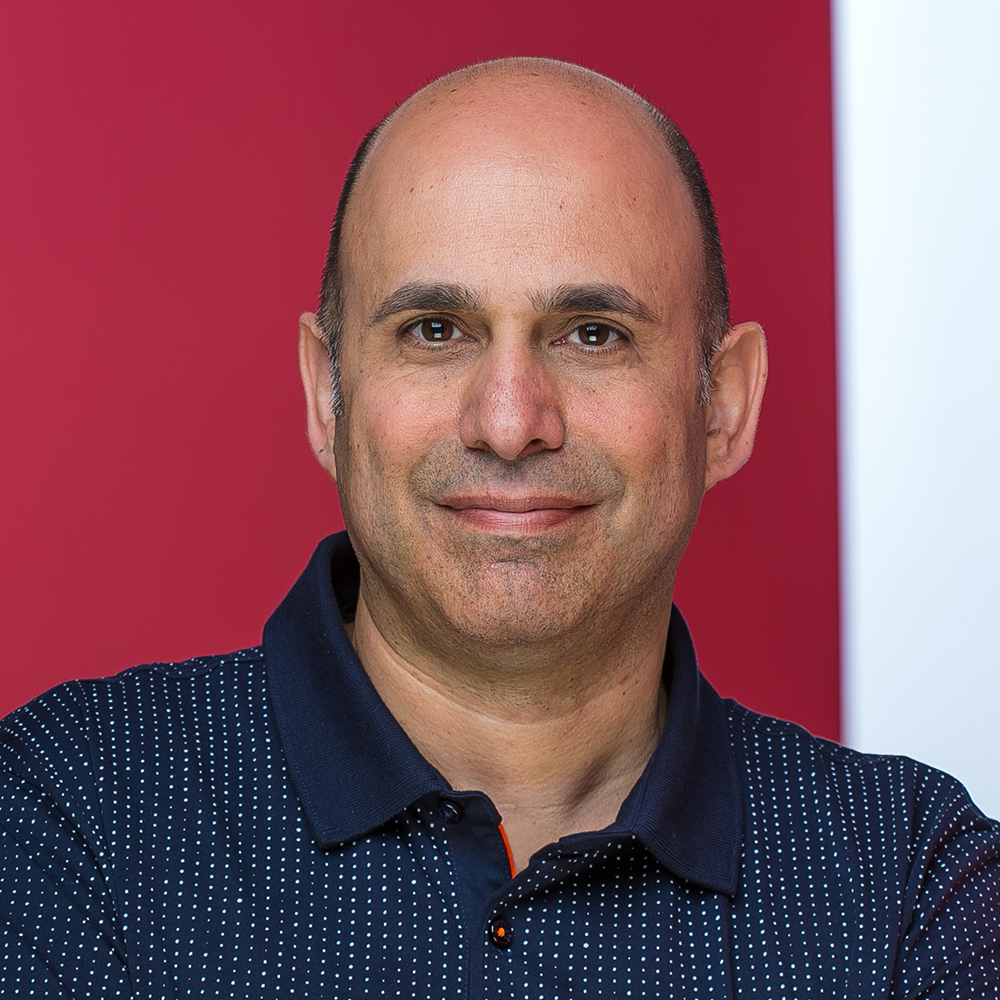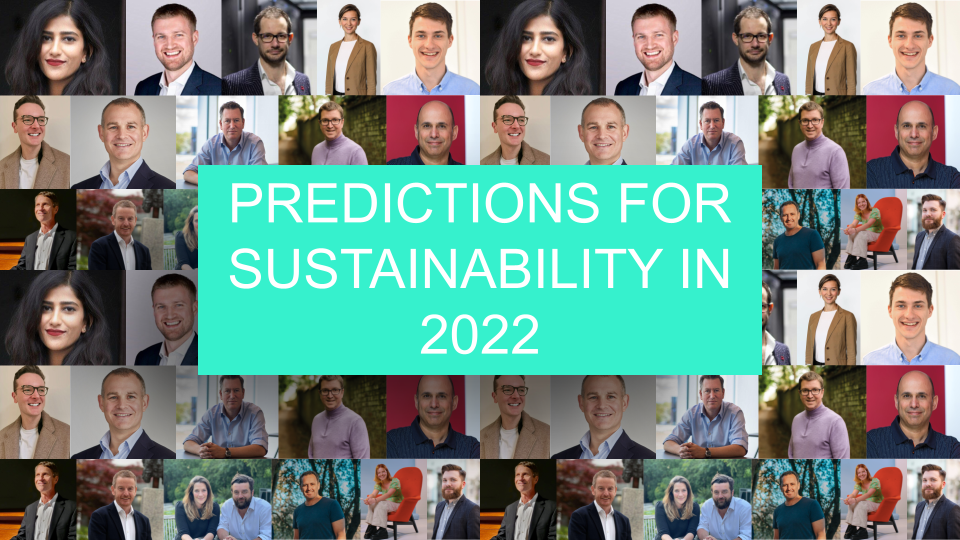- We’ve collected industry expert predictions for the future of sustainability in 2022.
- The continued impact of COVID-19 has brought about interesting trends for sustainability across all industries throughout 2021 – which ones will continue to thrive throughout this year and beyond?
- Here, we explore predictions from experts in the industry including Carl Ennis, Chief Executive of Siemens; Anna Krotova, Director of Sustainability at Mambu; and Tom Newbald, Chief Executive Officer at Swycha.
The news in late-October and early-November 2021 was dominated by the 26th Conference of the Parties (COP26) as the COVID-19 pandemic took a brief backseat. Held in Glasgow, COP26 saw hundreds of world leaders come together to talk about the pressing issue of climate change.
This brought necessary discussions about the impact of climate change into the media and into the homes of the public. Many people were inspired to find ways to be more sustainable in their daily lives. We asked a panel of experts for their predictions on sustainability in 2022.
Our Panel of Experts
- Adam Bradshaw, Commercial Director at ServerChoice
- Carl Ennis, Chief Executive of Siemens
- Steve Crolius, President of Carbon Neutral Consulting
- David Richardson, Director at Coryton
- Karishma Gupta, Founder of Satatland, Circular Fashion
- Henry Popiolek, Co-Founder of Staze
- Joe Wood, Investment Associate at houzen
- Tom Cuthell, Senior Director of London Tech Week
- Ben Pollard, Founder & CEO of Cushon
- Jason and Emma Ash, Founders of YoungPlanet
- Tom Newbald, Chief Executive Officer at Swycha
- Simon Hombersley, CEO of Xampla
- Anna Krotova, Director of Sustainability at Mambu
- Mhairi Cochrane, Co-Founder of Floco
- Ron Benegbi, CEO & Founder at Uplinq
- Toby Gill, CEO at IPG
For any questions, comments or features, please contact us directly.

Adam Bradshaw, Commercial Director at ServerChoice

“The climate crisis is becoming a more pressing issue each day, with consumer demand for action and sustainability measures growing at the same speed. Being heavy energy consumers, data centres are going to face more scrutiny than most in this regard. As customers reorganise their demands and prioritise sustainability, data centres will have to take action in order to remain competitive, promoting innovations in areas such as liquid chip-based cooling and data hall design layouts.”
Carl Ennis, Chief Executive of Siemens

“While COVID continues to dominate the agenda, it’s impact could well fade as the engineering and technology industries refocus their efforts on other pressing challenges during 2022; namely the road to net zero and the climate emergency. Following COP26, the list of net-zero measures proposed in the Government Net Zero Strategy paper are both wide-ranging and far-reaching. Recommendations cover everything from heat, transport, industry, energy, investment and innovation.”
“And just as we turned to our scientists and engineers in our time of need in the pandemic, we’ll likely do the same as we seek answers to solving the greatest threat to our existence over the next three decades as we strive to hit the 1.5-degree target. The fourth industrial revolution can tackle 70% of the 169 sustainable development goals outlined by the UN. Big data, AI, blockchain, IoT and advanced materials and manufacturing are all technologies we can deploy right now and scale quickly.”
“To get there we will need:
- A far greater focus on local delivery of national ambitions. We cannot achieve net zero in the UK without significant progress at local level, whether that is transport, housing, energy, or waste.
- To prioritise decarbonising homes and buildings – an area often deemed too costly and polarising for the majority of residents. Houses are the single biggest source of expenditure for many people and green upgrades will need careful planning, subsidising and communicating.
- A fair and just way of pricing carbon in the UK. Around 1.7% of GDP comes from taxes on fossil fuels amounting to £37bn. Energy billpayers, motorists and homeowners are already paying for this transition via increased costs or taxation. There remains a case for a broader carbon tax, which would be simpler to understand and provide a clear incentive for all of us to reduce our carbon. Further discussion on the issue in 2022 is expected.”
Steve Crolius, President of Carbon Neutral Consulting

“Based on reports that surfaced over the last four months, we see several trends starting to flow together in a way that will drive the adoption of ammonia as a bunker fuel.”
“They include:
- Demand-side voices for maritime decarbonisation. Example: In October a group of high-profile cargo owners formed Cargo Owners for Zero-Emission Vessels with the goal of accelerating maritime shipping decarbonisation.
- Procurement steps by ship owners. Example: In November Fortescue Future Industries announced that it would have an ammonia-fuelled ship in operation before the end of 2022 with the goal of showing ‘the shipping industry the power of a vessel fuelled by green ammonia in real world conditions.’
- Vessel development by shipbuilders. Example: In September, Korean Shipbuilding and Offshore Engineering announced that it and its partner Hyundai Heavy Industries had received approval in principle from Bureau Veritas for an ammonia carrier with ammonia fuel propulsion.
- Propulsion system development by engine manufacturers. Example: In December, WinGD announced that it would offer ammonia-fuelled versions of its current maritime engines by the end of 2025.
- Supply infrastructure for low-carbon ammonia. Example: In November, Getech announced that it will build a ‘green hydrogen hub’ at the port of Shoreham in the United Kingdom whose elements will include an ‘ammonia importation facility’ that will also be able to serve as a bunkering terminal.”
“Pan out, and what comes into a view is a maritime ammonia ecosystem that is tangibly taking shape – not in some imagined future, but now, in 2022.”
For any questions, comments or features, please contact us directly.

David Richardson, Director at Coryton

“It’s my hope that 2022 will see us talking more about sustainable fuel as a viable option to help tackle the climate emergency we currently find ourselves in. Electrification might be the direction we all need to head in – but there are a number of environmental, practical and social challenges remaining before we can implement en masse.”
“We have 160 years of infrastructure geared around liquid fuel and we have 278 million existing light vehicles on Europe’s roads – with just 0.2 per cent of them electric. Those emission-producing vehicles aren’t going anywhere right now, so we need to be addressing the current fleet to make the most immediate impact. It’s great that we’re planning for 10 years’ time, but that shouldn’t stop us looking at solutions (even if they’re not perfect) which can start making positive changes much sooner.”
“In a relatively short timeframe we could introduce a higher proportion of sustainable fuel to our existing forecourts, which our internal combustion engine (ICE) vehicles can use. Petrol and diesel vehicles can run on sustainable fuel with no alterations required. E10, which contains up to 10 per cent of bio-ethanol, has already been introduced at the petrol pump in the UK. We can’t go much beyond 10 per cent bio-ethanol for compatibility reasons but ‘bio’ doesn’t have to mean ethanol. We could significantly increase other bio content in our fuels without any compatibility issues.”
“Industry and government figures show sustainable fuel could reduce carbon emissions by more than 80 per cent compared to fossil fuels. This would buy us time to get the electric infrastructure in place.”
“Motorsport is already seeing the benefits of sustainable fuel. This month for the first time a major race team taking part in one of the world’s most challenging races, the Dakar Rally, has run on a sustainable fuel we produced. Hopefully 2022 will be the year we start looking at how sustainable fuel can play a role in day-to-day transportation too.”
Karishma Gupta, Founder of Satatland, Circular Fashion

“2022 is really interesting and a great place to start from. The awareness regarding sustainability has never been higher amongst the consumers. Over 60% of customers in the UK now place more importance on sustainability which will drive more customers trying alternate ways of shopping for fashion.”
“After 2 years of being stuck in the pandemic the value of owning clothes has eroded in customer’s minds. More and more customers will try renting fashion, shop pre-loved clothing, and digital fashion for the first time. More statistical records will break and we will see our consumption behaviours changing to more circular and sustainable ways.”
“I also feel that in 2022 the biggest threat to our societies and a roadblock to effective climate action are the ultra fast fashion brands which are targeting GenZ’s vulnerability, who are sadly hit hardest by job losses fuelled by the pandemic. We as conscious fashion industry leaders have to make sure they are not left behind in our climate change fight.”
Henry Popiolek, Co-Founder of Staze

“As corporate travel picks back up again in Q2 and Q3 of 2022, there will be increased public attention on the carbon footprint of business travel – long gone are the days when you could fly over to New York for a client dinner!”
“It’s going to be fascinating to see companies balance the need to travel with the risk of negative PR, and I think we’ll see companies taking proactive steps to reduce the carbon footprint of their trips in light of this.”
For any questions, comments or features, please contact us directly.

Joe Wood, Investment Associate at houzen

“Employees wellbeing taking the front seat: The Great Resignation (mass employee resignation trend, starting in early 2021), increasing inflation, and people demanding better work experience should make 2022 the year for people. The job market is hotter than ever, and if staff want to retain their employees, they will have to offer more to retain and get talent. Tech startups already attract the best talent because of the intellectual challenges they bring, but there will be more of a focus on keeping the mental and physical wellbeing of the employees. E.g. unlimited holidays, therapy access, wellness activities, group activities, increased pay inline/above inflation and other equity-related packages.”
“Moving towards stricter business sustainability ratings: The fastest-growing type of investment is ESG (Environmental, Social, and Governance), which is expected to be ⅓ of global assets under management by 2025; however, the measurement of ESG of businesses is flawed. Amazon was upgraded to an average sustainability rating (BBB) in 2020 by MSCI (largest ESG ratings agency) whilst employees were peeing in bottles. Furthermore, with a decentralised supply chain, Amazon’s management has no way of accurately measuring its environmental impact. If this hot market is to be sustained and grow to expected levels, there must be an overhaul of ESG ratings. Currently, there is room for fraud, and after COP26, there should be further improvements towards regulating this space. A simple way for startups to keep up with the ESG push is to apply to B-corporate certification.”
“AI and humans collaborate more: Capabilities of technology is rapidly improving, and AI will continue to be integrated to make humans lives easier. New AI-based tools cut the need for tedious, repetitive tasks and allow people to focus on more demanding, creative activities. Ex.Orbital Witness aims to modernise and accelerate the legal due diligence process with a platform to access and organise property information from HM Land Registry and local authorities, facilitate quick document review and flag risks automatically to lawyers and underwriters. Houzen launched an AI-based property valuation tool that values any UK property faster and more specific than an agent, and without the need to physically view the property.”
Tom Cuthell, Senior Director of London Tech Week

“Building on our successful launch in 2021 with two flagship conferences, the 2022 ClimateTech conference will return as part of London Tech Week in June. In addition, the ClimateTech Council, comprising 20 founders with a combined valuation of over $1bn, will continue their series of roundtables, focused on policy, investment & media relations. ClimateTech will also host unicorn founders and the best and brightest start-ups alongside Prince Albert’s Monaco Foundation at Oceans Week in March, and with Founders Forum New York in October.”
“Here are some of the biggest ClimateTech trends for 2022:
- Mass electrification of road transport continues at pace, as Tesla becomes one of the world’s most valuable companies. Everything from electric mopeds to trucks are taking over the streets. Watch the incumbents come out with new models and plenty of new entrants launch into the market.
- Developments in the future of food and its regulation; molecular farming, vertical farming, insect farming, for example. How are we going to feed the increasing billions with less arable land?
- Lots of young people are now getting out of legacy tech and moving into climate-tech so expect lots of exciting innovation.
- We’ve forgotten about COP26 already and the focus will move to COP27 in Egypt in November.
- Crazy nuclear fusion advances that were not thought possible up until breakthrough advances in 2021, and China just switching on its device that is five times hotter than the sun!”
Ben Pollard, Founder & CEO of Cushon

“Sustainability was a major focus in 2021 and this will continue this year as companies and individuals have a greater awareness of their environmental impact, both directly and indirectly. Corporates are more likely to be held to account over their emissions by customers, employees and regulators and – after largely cutting the low-hanging fruit – they must look for other ways to continue to make reductions across operations.”
“A largely ignored area but one that can make a big impact is pension schemes. With the average UK pension pot helping to finance 23 tonnes in carbon emissions each year through the companies it invests in – the equivalent of running 9 family cars or burning 1,100 coal fires – there’s plenty of scope to make huge strides forward in this area to benefit people and the planet. And with 60% of younger employees wanting their pension to fund greener investments, I think this will be a key area of focus over the next 12 months.”
“A greener pension is not only good for the planet, but it can also increase employee engagement levels which ultimately translates to businesses getting more bang for their pension buck. 62% of employees would engage more with their pension if they knew it was having a positive impact on climate change – it becomes a pension to be proud of and a benefit worth engaging with, for example our ESG voting functionality allows members to vote in app on Environmental, Social and Governance issues to drive change in their pensions. Using tech to support better engagement levels mean that employees are attaching more value to their pension and see the employer contribution as a real benefit.”
For any questions, comments or features, please contact us directly.

Jason and Emma Ash, Founders of YoungPlanet

“Following increased interest and concerns about climate change and environmental waste in 2021, we believe that 2022 will see a rise in sustainable business practices, particularly those which promote a sharing economy model.”
“Based on our experience of creating a circular economy platform that enables the free exchange of second hand items, there is a great opportunity for businesses to combine sharing economy principles with a viable business model. This area of the economy has huge potential; the sharing economy is set to be worth £9 billion within the next 5 years. Whilst it’s a market that’s still not fully matured, the demand is there. At YoungPlanet, we’ve seen huge growth in the last year – our community has grown by over 400% – and we expect the next year to see the pace increase as consumers commit to more sustainable practices.”
“We believe that consumers’ attitudes are shifting away from the idea that second hand means second best, and we predict that the circular economy will start to become the first choice for conscious consumers in 2022.”
Tom Newbald, Chief Executive Officer at Swycha

“We’re seeing big brands take note of the ever-growing consumer attitudes towards the human and environmental impact of fast fashion in the clothing industry. I believe that circular economy principles, recycling, and extending the lifespan of our tech devices will be huge for sustainability in 2022.”
“Despite our cultural obsession with new tech releases (cue the pictures of thousands of people queuing outside Apple’s Fifth Avenue New York store) an increasing number of consumers are becoming switched on to the importance of not just clambering to get the latest device, but rather sticking with their current device or reusing another person’s device.”
“And, in November 2021, Apple launched their iPhone 12 and 13 self-repair programme which basically allows customers to complete their own repairs rather than just buying a brand new handset.”
“Recent Giffgaff research showed that there has been double digit year-on-year growth in refurbished phone sales between 2019/2020 and 2020/2021. People are waking up to the fact that the environment won’t keep up with our insatiable thirst for new tech devices with all the demand for raw materials, C02 emissions and the disposal of harmful chemicals to our environment.”
“We can see from a tech branding point of view – consumers are becoming more environmentally inclined. So, it is now not enough to say you care – tech companies must make tackling climate change an absolute priority and we see that sustainable credentials will continue to become genuine brand differentiators for an increasing number of consumers.”
Simon Hombersley, CEO of Xampla

“The road through January is paved with good intentions. People naturally want to improve their own health by cutting back on booze or throwing themselves into vigorous exercise regimes. But this year a survey of 2,000 adults also found half the public wanting to help the natural environment by cutting their plastic consumption in 2022.”
“In consequence, a major trend for this year and beyond is the extent to which big brands will look to meet this consumer demand. Beyond making strides toward more refillable and recycled solutions, there will be a concerted effort to replace so-called “flexible” plastics from the films around food produce to the hidden plastics used inside products such as dishwasher tablets and laundry detergents.”
“While only 9% of the plastic produced on Earth has ever been recycled, for the most part governments do not even try to recycle these flexible materials. Some are washed away into the water system, and those used to wrap food usually end up in the bin – headed for landfill or incineration.”
“Light films of this kind are very hard to recycle economically, since they gum up recycling systems and produce very low quality output. That means the race is on to find a natural replacement which obviates the need for recycling altogether. The dream is of a plastic that doesn’t pollute: which can be grown from local plant feedstock and composted back to the soils from which it came.”
“Xampla is turning that dream into a reality. Based on 15 years at the University of Cambridge, we are producing a film made from plant protein which can match the performance of plastic but which is safe to eat if it finds itself in the ocean or natural environment. We are confident that when the big brands see how it works, their New Year resolution for 2023 will be to start saying ‘goodbye’ to traditional single-use plastic films for good.”
For any questions, comments or features, please contact us directly.

Anna Krotova, Director of Sustainability at Mambu

“2021 was characterised by powerful sustainability advancements and we will see the momentum created from COP26 carry into 2022. The biggest trend we will see is the clarification of what it really means to be sustainable – from claims that companies make about their products to how they operate. Capital market regulators and policymakers will continue to work tirelessly to create instruments that will guide but also force private sector companies to critically look at whether their business models and practices ultimately add net positive value to the world. Now that the link between the climate crisis and financial stability has become more evident, we will see such instruments orient investors to manage their capital in line with sustainability outcomes and, subsequently, disclose the impacts.”
“In financial services, this will spark the growth of impact finance – which is an application of finance to bring the world to a better state. We will see more firms commit to the principles of ethical banking and step away from the funding of destructive practices. Instead, capital will be redirected to finance projects that make a positive environmental and/or social contribution in addition to financial return.”
“But the sustainability transition is so complex and great in scope that no one company can deliver on it alone. What we will see in 2022, is cooperation not competition. Solutions of this stature require a multi-stakeholder approach and it is expected that companies from very different sectors will come together to achieve the transition to net-zero by 2030. Think of Rabobank and their partnership with Enfuce to allow banking customers to track the carbon footprint of their transactions. Climate tech will be on full display and we can expect innovations like these to push the drive of private sector firms into playing their part and seeking new exciting partnerships. That being said, everyone’s transition to net-zero will become more salient this year, with customers’ choices being guided by a firm’s ability to actively reduce not only their own footprint but also that of their partners and wider supply chain.”
Mhairi Cochrane, Co-Founder of Floco

“Sustainability is definitely at the top of everyone’s radar with COP26 last year and growing momentum encouraging us to rethink the way we live our lives. When thinking about sustainability we might not immediately think about our period products. Use of sustainable period products has been growing steadily over the past few years however there has recently been a dramatic rise in sustainable or organic period product brands.”
“In 2022 I think use of sustainable period products, in particular reusable period products is going to rise sharply. As a society we are also getting more comfortable with periods generally. Adverts have ditched the blue liquid TV ads and opted for showing us blood. Activists are shouting more loudly about period stigma. The media is no longer shying away from the topic. Periods are entering the political sphere with the removal of Tampon Tax in 2021 and the introduction of policies providing people with periods with access to free products if needed.”
“We are also (rightfully) demanding more from our products. We are no longer willing to put up with a period product which feels like rubbish- literally. Swapping to reusable period products is a generally small change but can have a massive impact. The average person who flows will use more than 11000 disposable period products in their lifetime. By swapping to reusable period pads, a user can save 64kg of plastic from going to landfill and reduce their carbon emissions (a reusable pad user can save 316kg of CO₂E). In 2022 I expect to see reusables enter the mainstream retail market. We will see more reusable brands on shelves. Personally, I am very excited.”
Ron Benegbi, CEO & Founder at Uplinq

“Last year’s UN Climate Change Conference was a watershed moment in the fight to protect our environment. There are increasingly few people left with any doubts about the impending and existential climate crisis facing our planet. However, to find solutions to this challenge we will need to begin offering better support to businesses of all sizes. Personally, I think that 2022 might be the year that we finally see this starting to happen.”
“Unfortunately, there’s now an abundance of research to suggest that larger firms are more equipped to meet their net-zero goals than smaller counterparts. At the root of this problem is a disparity in investment between both types of business. In fact, a recent British Business Bank report confirmed that the ‘nation’s smaller businesses are lagging behind in their net-zero push’.”
“The scale of the challenge is concerning. To this end, a recent HSBC and BCG report found that the world’s small and medium sized businesses (SMBs) will need as much as $50 trillion worth of investment to achieve a net-zero transition by 2050. This is worrying, especially as smaller businesses are currently responsible for around half of the UK’s business-produced emissions.”
“Failing to achieve a net-zero transition will invariably lead to significant environmental consequences. Notably, this outcome would prohibit the global community from meeting the goals identified in the 2018 Paris Agreement. If this was to happen, vast swaths of the planet would become increasingly inhospitable to humans and wildlife.”
“Therefore, there’s a real need for new solutions that make the credit lending process more hospitable to SMBs. New systems, which incorporate alternative data into the decision-making process are long overdue. Fortunately, at Uplinq, we’re able to offer this through our innovative credit assessment technology, which we recently launched across the globe.”
“With our system, credit lenders gain greater access to billions of alternative data points. This is a huge positive, especially in emerging and evolving markets where data is often difficult to attain. By adopting these measures, credit lenders are able to build a fuller picture of SMBs and can have more confidence providing them with the lending capital needed to achieve their net-zero goals.”
Toby Gill, CEO at IPG

“Scalability and reliability pose a big challenge to the wider global adoption of climatetech in 2022. There is no ‘silver bullet’ solution, with each industry, country, and even individual businesses, battling their own unique challenges.”
“The good news is that we have entered a new era of climatetech in which the available solutions are no longer just environmentally sustainable but are also financially viable. Now is the age of salesmanship in the industry as we continue technological development – and what climatetech providers need to sell are solutions that help businesses transition to greener energy options with minimal risk and impact on their operations.”
“This year, the focus will shift to integrated, customer-centric solutions that account for the risk appetite of different businesses across sectors. By addressing the fundamental issues halting adoption of greener solutions, the industry can drive both innovation and uptake. For example, energy storage is vital to guaranteeing reliability to businesses that need a consistent supply to operate. Complementary technologies that optimise the entire energy system long-term — a combination of hardware such as batteries and generators, software, and data analytics – will be crucial to turning the current progress into lasting change.”
“It’s natural for decision makers to want a simple, easy solution to their problem, a ‘silver bullet’, but the reality is that optimising cleantech infrastructures will demand a more complex set of solutions. Ultimately, education about the solutions available will still need to be at the forefront of the climatetech industry to help those considering a greener approach take positive steps towards change.”
For any questions, comments or features, please contact us directly.




